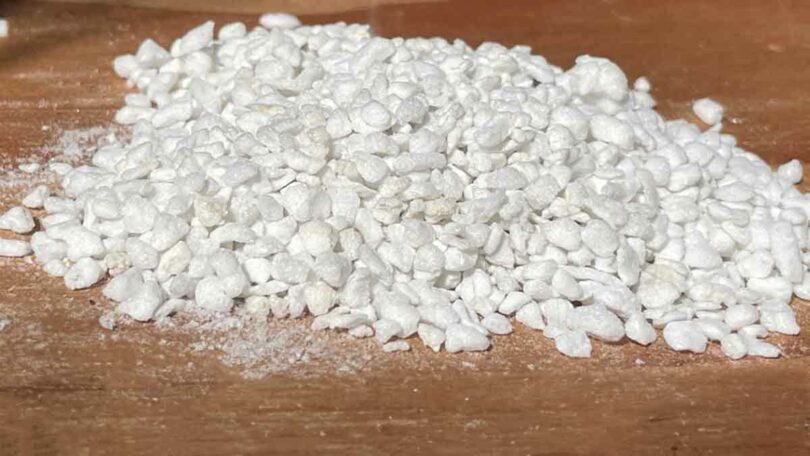
Perlite is widely used improve drainage in potted plants, it is an organic addition to many potting mixes. It is made from a volcanic glass and is then expanded in an oven.
If you have ever purchased a plant you will notice that often small white particles are in the potting mix. This is most likely perlite and it is widely used in growing mediums.
Perlite is used for soil amendment and has a number of properties and one of the most important is that it is able to retain moisture without allowing the soil or growing medium to become wet and soggy.
Used in potting mixes as well as in hydroponics it is also useful as a soil amendment.
So a product that retains moisture and improves drainage sounds like a useful addition to many growing mediums and indeed it is.
Other properties include
- non toxic
- alleviates soil compaction
- is a sterile and disease free medium
- fairly neutral ph
- encourages root growth
Readily available at most good nurseries as well as from online suppliers in Australia. Also in bulk from selected wholesalers
Perlite Uses
Seed Raising
Often a mixture of 50% perlite and 50% sphagnum moss mixed in with twice as much finer compost. So 1-1-2 perlite, sphagnum moss, fine compost.
In the garden
Now this is where the debate begins, for some plants perlite is a godsend, particularly some of the terrestrial orchids which require moisture as well as perfect drainage. Some gardeners think this is a little bit of a waste, and suggest just digging in compost to improve soil structure, true for many plants but not for all.
So for plants like Cypripedium orchids. some perlite added to the soil can have a few benefits. Firstly it will retain moisture through summer which is important in warm climate, secondly it will open up the soil and improve drainage as well. The same goes for Dactylorhiza species
Cuttings
As perlite improves drainage if reduces some of the problems with cuttings, including damping off. It encourages root growth because of the open structure and is sterile
Other Information
So in summary perlite has many uses including in growing mediums for containers, for seed raising, cuttings and for soil amendment for some plants. Perlite also has insulation properties to prevent the cold of winter being so sever on plant roots. And of course it is widely used in hydroponics.
You may also be interested in
- Sphagnum Moss
- Vermiculite
- Peat Moss
- Coir peat

